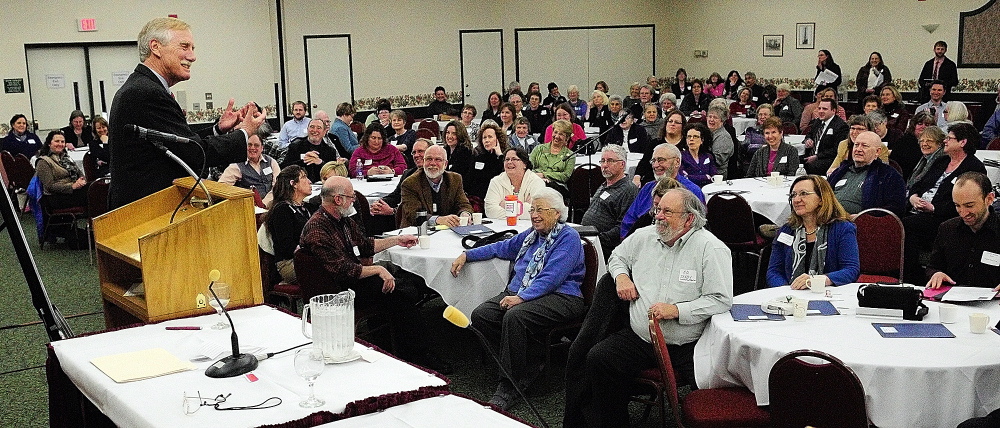Here’s one for the Mainers who grumble about federal taxes and the size of the national debt: Maine is one of the nation’s leaders in terms of receiving federal largesse. Or in the immortal words of Republican Rep. Paul Ryan, up here in the Pine Tree State, we are “takers,” not “makers.”
So it’s not the drug dealer with a forged EBT card who’s bankrupting the government, it’s us. Thirty percent of our gross domestic product is federal spending, and without this source of revenue, this state’s economy would crash so far that 1929 would look like Easy Street.
How the independent, self-reliant Mainer got to be such a hog for federal welfare is explained by another story that came out this week.
According to the latest U.S. Census data, we retain our lock on first place as the nation’s oldest state, when measured by median age — which, as of 2013, is 44. That’s well above the national median age of 37.5.
We have the nation’s highest percentage of baby boomers, born between 1945 and 1964, so we have a bigger share of people at or near retirement age than other states. That means we have more people eligible for Medicare and Social Security, which are federal programs.
If a higher percentage of our population were under 44, our rating as per-capita receiver would be lower. All this is a long way of saying that we are old and getting older. We are also relatively poor.
The census tells us that Maine’s average household income is $48,453, well below the national figure of $53,046. This is also related to our aging population. Elderly residents trying to make it on Social Security don’t make the kind of money needed to generate economic growth.
So what should we make of our high receiving status? First, we should be grateful we have it.
Our elderly, veterans and people with disabilities would be lost without the benefits they get, and we really should be spending more on their care, not less.
It’s also important to remember who gets the federal money. Except in the case of salaries, employee pensions and Social Security, the federal money comes to Maine in payments that go mostly to hospitals, nursing homes and other health care providers.
These private businesses hire workers who buy houses, pay taxes, eat in restaurants, shop for groceries and otherwise move that money around the local economy. Rather than demonize people who receive benefits, we would be better off recognizing that this spending is vital to our economic health, whether we are direct receivers or not.
The real question is how we can increase the strength of our private-sector economy so that the federal spending doesn’t play such a big role in comparison.
To do that, we need to focus on the steps we can take to generate growth and attract more young people to our state who could be paying into the system and helping to support our elder residents.
Send questions/comments to the editors.



Success. Please wait for the page to reload. If the page does not reload within 5 seconds, please refresh the page.
Enter your email and password to access comments.
Hi, to comment on stories you must . This profile is in addition to your subscription and website login.
Already have a commenting profile? .
Invalid username/password.
Please check your email to confirm and complete your registration.
Only subscribers are eligible to post comments. Please subscribe or login first for digital access. Here’s why.
Use the form below to reset your password. When you've submitted your account email, we will send an email with a reset code.